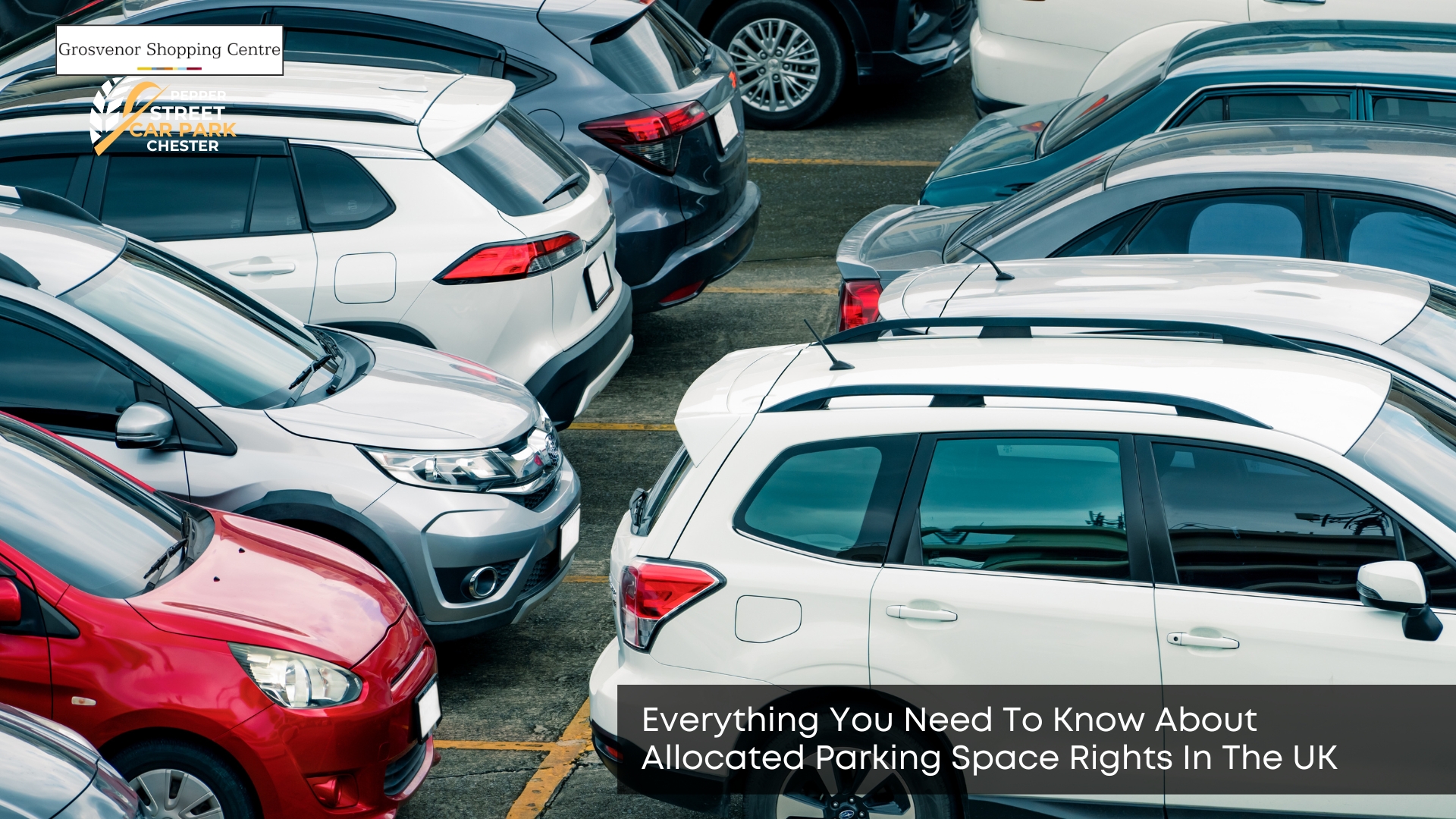In the UK, an allocated parking space is often seen as a key selling point for a home or flat, but many people don’t fully understand their rights. Whether it’s marked in a shared car park or listed in a legal agreement, knowing what you’re entitled to can prevent confusion, arguments, and even legal trouble. In this article, we explain everything you need to know about allocated parking space rights in the UK, from ownership and enforcement to what happens if someone else uses your spot.
What Is an Allocated Parking Space?
An allocated parking space is a specific spot assigned to a property for the use of its owner or tenant. It’s often clearly marked with paint or signs and may be located in a shared car park, garage or driveway area. These spaces are typically linked to a flat, house or commercial unit, giving the resident a guaranteed place to park. While that might sound straightforward, how these spaces are assigned can vary.
How Are Parking Spaces Allocated in the UK?
Parking spaces are usually allocated by property developers, freeholders, managing agents or housing associations. The space may be written into the property’s lease or ownership documents, or assigned informally through a tenancy agreement. In some cases, allocation is based on a first-come, first-served system, while others assign fixed spaces from the start. How the space is allocated can affect your long-term rights, especially when legal ownership is involved.
Is an Allocated Parking Space Legally Yours?
Yes, if your allocated parking space is detailed in your lease, freehold title or tenancy agreement, it is legally yours to use. This gives you the right to park there and to stop others from using it without permission. However, if the space is not legally defined—such as with informal arrangements—you may have fewer rights. The legal status also depends on whether the space is freehold or leasehold, which leads to the next point.
Do Allocated Spaces Come with Property Ownership or Rental?
Allocated spaces often come with property ownership or rental agreements, especially in modern flats and housing developments. The right to use the space may be granted through a lease or licence and can be exclusive or shared. Some properties include the space as part of the sale, while others assign it separately. How the space is tied to the property affects your ability to keep or control it. Sometimes, this connection can change.
Can Allocated Parking Spaces Be Taken Away or Changed?
Yes, allocated spaces can be taken away or reassigned, but only if the legal documents allow for this. In leasehold arrangements, the landlord or managing agent might have the power to make changes, especially if the lease includes flexible clauses. In freehold cases, the space is often permanent unless sold or transferred. It’s important to read the lease carefully to understand if your space can be moved. If that happens, problems may arise when others misuse the space.
What Happens If Someone Else Parks in Your Allocated Space?
If someone parks in your allocated space without permission, they are trespassing and may be in breach of contract. This can be frustrating, especially if you have nowhere else to park. While the police are usually not involved, you can contact your managing agent or block management company to take action. If the problem continues, you may need legal advice. The next question is whether you can take matters into your own hands.
Can You Legally Stop Someone from Using Your Space?
You can stop someone from using your space by putting up signs, using bollards or notifying your property manager, but you cannot clamp or tow the vehicle yourself. The Protection of Freedoms Act 2012 bans private clamping on private land without lawful authority. Instead, you can seek enforcement through the managing agent or, in some cases, take civil action. Clear communication and good records are key if you need to escalate the issue.
Are There Any Rights to Visitors Parking in Allocated Areas?
Visitors usually have no automatic right to park in allocated spaces unless permission is given by the owner or tenant. Some developments have separate visitor bays, but these are often limited and used on a first-come basis. Parking in another person’s allocated space, even for a short time, can lead to disputes. Clear rules and communication help prevent confusion. When it comes to ownership, the right to rent or sell the space is another factor.
Can You Sell, Rent or Swap an Allocated Space?
Yes, you can sell, rent or swap an allocated parking space—but only if the lease or freehold title allows it. Some spaces are tied directly to a property and cannot be sold separately. Others can be rented to neighbours or visitors, as long as it doesn’t breach development rules. Always check with your landlord or management company first. These types of changes also involve legal oversight from those who manage the property.
What Role Do Managing Agents or Freeholders Play?
Managing agents and freeholders are responsible for enforcing parking rules, maintaining shared areas and resolving disputes. They often control how spaces are allocated, reassigned or monitored. If there’s a problem with misuse or confusion, they’re the first point of contact. Their responsibilities vary depending on the lease and development setup. They also help ensure parking rights are properly documented.
Do Allocated Parking Rights Appear on Title Deeds or Lease Agreements?
Yes, parking rights usually appear on your title deeds or lease agreement if they are officially part of the property. These documents will state whether the space is exclusive, shared or simply available on a licence. The wording matters, as it defines what rights you have and whether the space can be moved or reassigned. Understanding these terms also helps clarify the difference between leasehold and freehold rights.
What Are the Differences Between Freehold and Leasehold Parking Rights?
Freehold parking rights give you full ownership of the space, meaning you can sell, rent or control it as you wish. Leasehold rights are more limited and are often subject to conditions set out in the lease. Leaseholders may have to follow rules from managing agents and may not be allowed to sublet the space. Knowing whether your space is leasehold or freehold helps avoid future issues. Either way, you’ll want to keep your space protected. Whether it’s freehold or leasehold, managing your parking in Chester comes down to staying informed and protected.
How Can You Protect Your Allocated Space from Misuse?
You can protect your space by installing fold-down bollards, placing clear signage or reporting unauthorised use to the management company. Parking permits, number plate recognition and surveillance also help keep spaces secure. If problems persist, keeping a log of incidents and photos is useful for resolving disputes. These steps help if a legal disagreement occurs. In busy areas, using permits or tech can make all the difference, especially where all-day parking demand is high.
What Should You Do If a Dispute Arises Over a Parking Space?
If a dispute arises, start by checking your legal documents and talking to the other party calmly. If that fails, speak to your managing agent or residents’ committee for support. Mediation can help settle disagreements before they become legal cases. If the issue continues, you may need legal advice or to take civil action. Knowing your rights from the start makes it easier to handle these situations with confidence. Site design or ventilation issues can sometimes lead to confusion too, as seen in our piece on car park ventilation and safety.


Leave a Reply